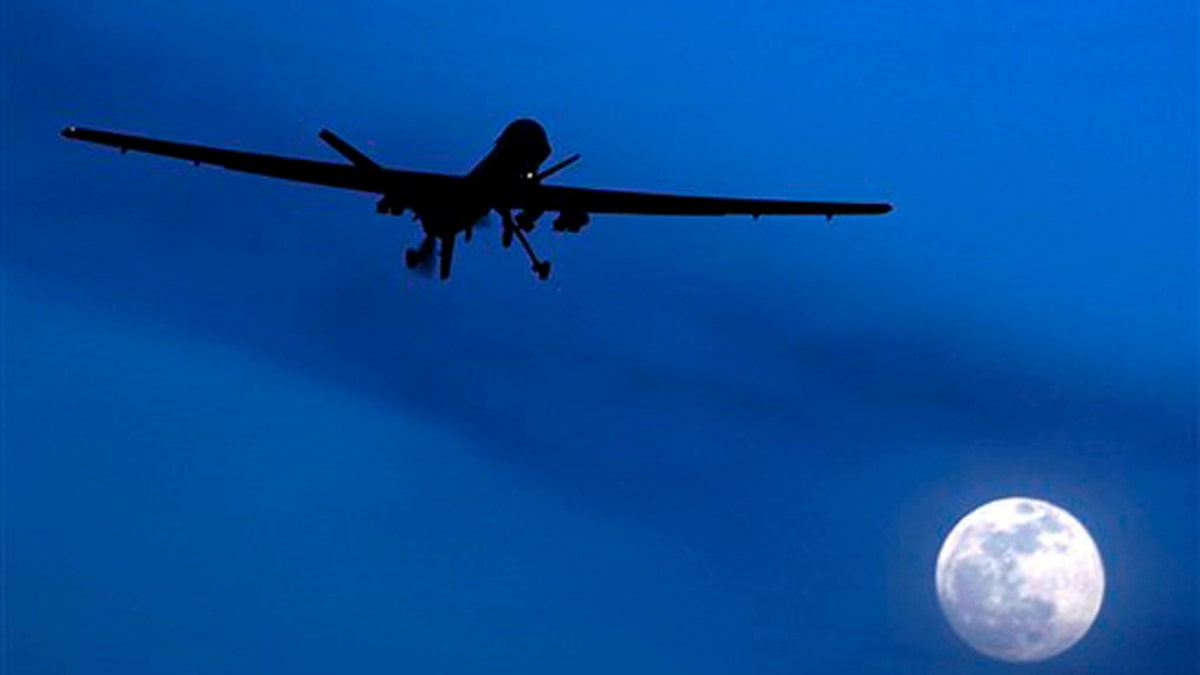
Jan. 31, 2010: This file photo shows a U.S. Predator drone flies over the moon above Kandahar Air Field, southern Afghanistan. (AP)
About once a month, the Central Intelligence Agency sends a fax to a general at Pakistan's intelligence service outlining broad areas where the U.S. intends to conduct strikes with drone aircraft, according to U.S. officials. The Pakistanis, who in public oppose the program, don't respond.
On this basis, plus the fact that Pakistan continues to clear airspace in the targeted areas, the U.S. government concludes it has tacit consent to conduct strikes within the borders of a sovereign nation, according to officials familiar with the program.
Representatives of the White House's National Security Council and CIA declined to discuss Pakistani consent, saying such information is classified. In public speeches, Obama administration officials have portrayed the U.S.'s use of drones to kill wanted militants around the world as being on firm legal ground. In those speeches, officials stopped short of directly discussing the CIA's drone program in Pakistan because the operations are covert.
Now, the rationale used by the administration, interpreting Pakistan's acquiescence as a green light, has set off alarms among some administration legal officials. In particular, lawyers at the State Department, including top legal adviser Harold Koh, believe this rationale veers near the edge of what can be considered permission, though they still think the program is legal, officials say.
Two senior administration officials described the approach as interpreting Pakistan's silence as a "yes." One dubbed the U.S. approach "cowboy behavior."




